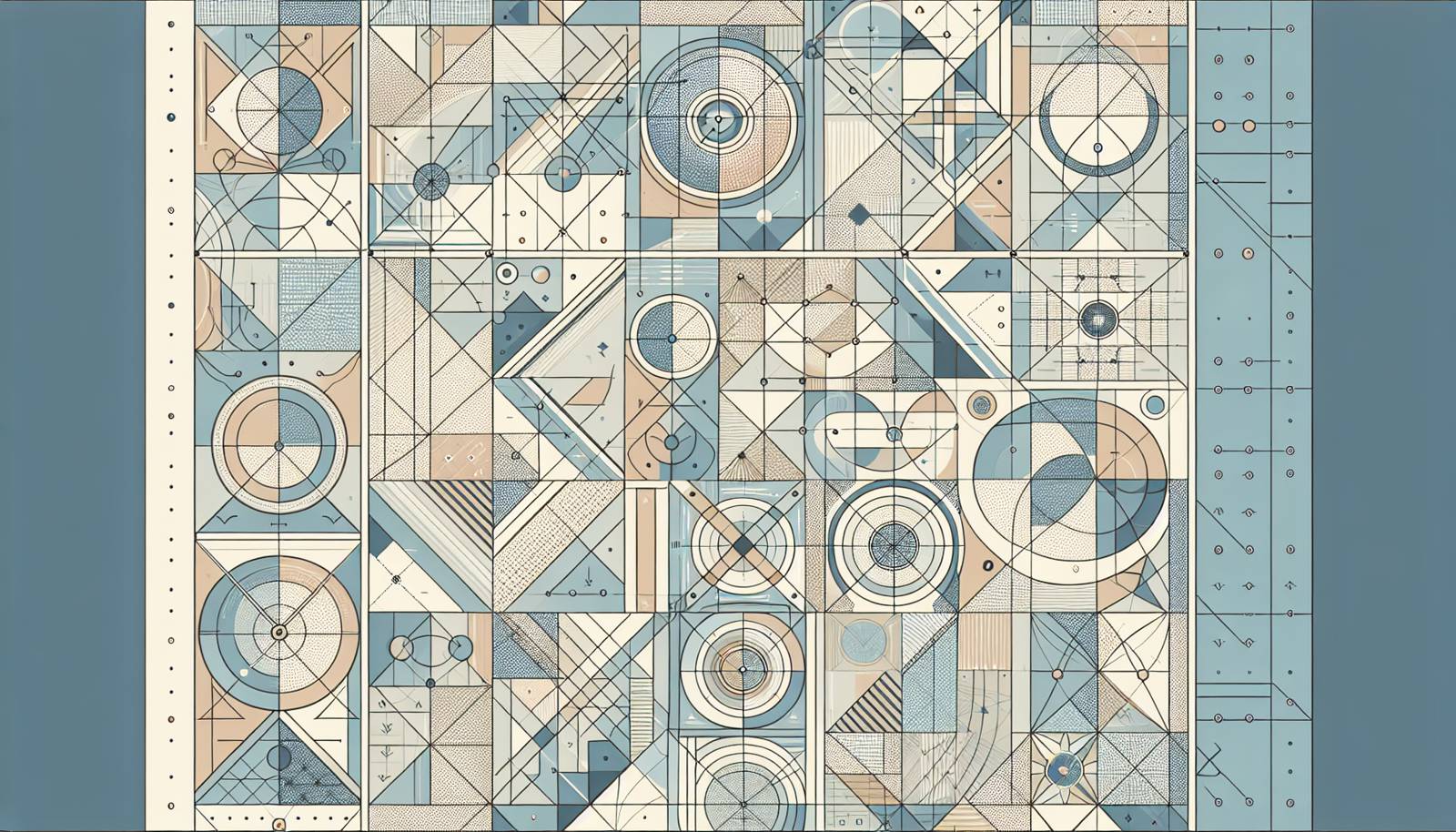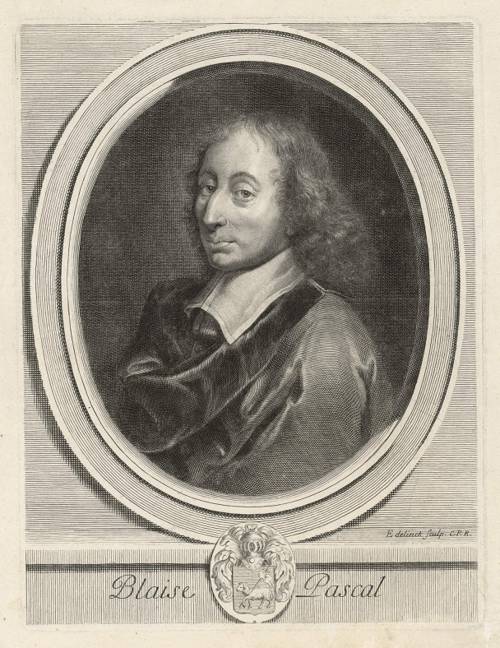
FAQ About Blaise Pascal

Who was Blaise Pascal?
Blaise Pascal was a renowned French mathematician, physicist, inventor, philosopher, and writer who lived in the 17th century. He made significant contributions to the fields of mathematics and physics, particularly in the areas of probability theory and fluid mechanics. Pascal is also known for his philosophical works, especially "Pascal's Wager," and his invention of one of the first mechanical calculators.

What are some of Blaise Pascal's major contributions to mathematics?
Blaise Pascal made several key contributions to mathematics, including the development of Pascal's Triangle, which is used in binomial expansions. He also formulated significant aspects of probability theory alongside Pierre de Fermat. Pascal's studies laid foundational principles for modern probability and statistics.

What is Pascal's Triangle?
Pascal's Triangle is a triangular array of numbers that contains the binomial coefficients arranged in successive rows. Each number is the sum of the two directly above it. This mathematical triangle has applications in algebra, combinatorics, and calculus.

What role did Blaise Pascal play in the development of probability theory?
Blaise Pascal, together with Pierre de Fermat, is credited with laying the groundwork for the theory of probability. Their correspondence on gambling problems, such as calculating the odds of winning games of chance, helped establish the mathematics of probability, which is fundamental in various fields today, including finance and risk assessment.

What is Pascal's Wager?
Pascal's Wager is an argument presented by Blaise Pascal in his philosophical work, which suggests that it is in one's best interest to behave as if God exists, because the potential gains (eternal happiness) outweigh any finite losses (such as inconvenience) if God does not exist. It is one of the early philosophical arguments involving the concept of probability.

How did Blaise Pascal contribute to fluid mechanics?
Blaise Pascal made important contributions to fluid mechanics with his study of fluid pressure and vacuum. He is known for formulating Pascal's Law, which states that a change in pressure applied to an enclosed fluid is transmitted undiminished to every point of the fluid and the walls of its container. This principle has practical applications in hydraulic systems.

What is Pascal's Law?
Pascal's Law, formulated by Blaise Pascal, states that pressure applied to an enclosed fluid is transmitted undiminished in all directions throughout the fluid and the enclosing walls. This principle is the basis for hydraulic lift and other devices that utilize hydraulic pressure.

Did Blaise Pascal invent any devices?
Yes, Blaise Pascal invented an early mechanical calculator known as the Pascaline. It was designed to assist his father, a tax collector, with arithmetic calculations. The Pascaline was one of the first devices capable of performing addition and subtraction directly.

What was Blaise Pascal's influence on philosophy?
Blaise Pascal was influential in philosophy, particularly with his work "Pensées," a collection of thoughts on religion, ethics, and human suffering. His ideas on existentialism and theology, including Pascal's Wager, continue to be studied and discussed in philosophical circles today.

Where was Blaise Pascal born?
Blaise Pascal was born in Clermont-Ferrand, France, on June 19, 1623. Clermont-Ferrand is located in the Auvergne region in central France, known for its beautiful volcanic landscape.

What is "Pensées" by Blaise Pascal?
"Pensées," French for "Thoughts," is a collection of fragments and essays written by Blaise Pascal. It covers topics such as theology, philosophy, and ethics, and was published posthumously. The work is especially noted for its exploration of faith, reason, and existential contemplation.

What health issues did Blaise Pascal face during his life?
Blaise Pascal suffered from various health problems throughout his life, including gastrointestinal disorders and migraine headaches, which significantly affected his productivity and quality of life. Despite these ailments, he managed to achieve considerable success in his academic and philosophical endeavors.

How did Blaise Pascal's religious views influence his work?
Blaise Pascal's religious views, particularly his Jansenist beliefs, heavily influenced his philosophical work. His devout faith is evident in "Pensées" and in his argument of Pascal's Wager, where he explores the relationship between faith, reason, and the human condition.

What was Blaise Pascal's involvement with Jansenism?
Blaise Pascal was a follower of Jansenism, a movement within Catholicism that emphasized predestination and original sin, similar to the views of Augustine of Hippo. His association with Jansenism influenced his writings and philosophical outlook, particularly in his critiques of the Roman Catholic Church's doctrines of free will and grace.

How did Blaise Pascal die?
Blaise Pascal died on August 19, 1662, at the age of 39, in Paris, France. His death is attributed to various health complications that he had been suffering from for years, including a probable malignant stomach tumor.

What was the significance of the Pascaline?
The Pascaline was one of the first mechanical calculators, invented by Blaise Pascal in the 1640s. Its significance lies in its ability to perform arithmetic operations mechanically, representing an early step toward the development of computers. It demonstrated the potential for machines to assist in mathematical calculations.

What is the legacy of Blaise Pascal in modern science and mathematics?
Blaise Pascal's legacy in modern science and mathematics is profound. He is regarded as one of the pioneers of probability theory, influencing numerous fields such as economics and risk management. In mechanics, Pascal's Law remains crucial in fluid dynamics and engineering applications. His philosophical insights continue to inspire discussions on faith and reason.

How did Blaise Pascal's work impact probability theory?
Pascal's groundbreaking work on probability theory helped establish the mathematical underpinnings of the field. His collaboration with Fermat on problems of chance laid the foundation for modern statistical and probability theory, impacting fields like economics, insurance, and gaming.

Did Blaise Pascal write any scientific literature?
Yes, Blaise Pascal wrote several scientific papers and works, including "Treatise on the Equilibrium of Liquids," which detailed his research on pressure and vacuum. His scientific writings contributed significantly to the fields of mathematics, physics, and engineering.

Why is Blaise Pascal considered a pioneer of computing?
Blaise Pascal is considered a pioneer of computing due to his invention of the Pascaline, an early mechanical calculator. It exemplified the concept of a programmable device, capable of executing arithmetic operations, which is a fundamental aspect of modern computing systems.
